Rise and decline of the Consumer Movement in India
The consumer movement is an organised social movement that promotes consumer protection and is often led by consumer organisations. It argues for consumer rights, particularly when those rights are actively violated by the activities of corporations, governments, and other organisations that offer customers with goods and services. Consumer movements frequently push for higher health and safety standards, truthful product information in advertising, and consumer representation in legislative bodies.
Bhamy V. Shenoy
Ralph Nader is widely regarded as the founder of the current consumer movement in most parts of the world. In India, however, we do not have a single such towering leader. Manubhai Shah, the founder of the Consumer Education and Research Centre (1978), and H. D. Shourie, the founder of Common Cause (1980) are both deserving of such a high honour. Manubhai Shah focused mostly on assisting individuals with personal problems or identifying consumer issues. Shourie’s initiatives aimed to effect systemic change through PILs filed before the Supreme Court.
In Karnataka some of the pioneers of the consumer movement were Jajie Mandanna, the founder of Karnataka Consumers Services Society (1974), Dr. K P S Kamath, the founder of Udupi Balakedarara Vedike (1980), and Prof Narayan Rao in Udupi. There were some well-known NGOs who followed the pioneers at the national level: Sriram Khanna of Consumer Voice in Delhi (1983), S R Desikan of Consumer Association of India in Chennai (1983), and Pradeep Mehta of Consumer Unity and Trust in Kolkata (1984). But before the mid-80s, there were not many NGOs in the consumer protection movement. However, special mention must be made of an individual activist M. R. Pai of free enterprise in the 80s. He concentrated on fighting for consumer-friendly services from monopolies like Indian Airlines, Indian Nationalized Banks, and Indian Telephones.
The adoption of the Consumer Protection Act on December 24, 1986 (COPRA) was a major impetus for the Modern Consumer Movement in India. Because of such a revolutionary Act, India observes December 24 as National Consumer Day. However, even after ten years, there were less than 800 NGOs, most of which had minimal budgets and relied on government handouts. There are currently roughly 2000 NGOs, the majority of which exist simply on paper.
It is paradoxical that in the US, President Kennedy has been credited as launching the Consumer Movement on March 15, 1962 by declaring four consumer rights – right to Safety, right to Information, right to be Heard, and right to Choose. In 1982, Consumer International, which has membership of 250 consumer groups, decided to celebrate March 15 as World Consumers Rights Day.
Consumers in the US were protected through competition and strong laws preventing unfair trade practices. But in India where consumers were taken for a ride in the absence of competition, we had to wait till 1986 to get the progressive Consumer Protection Act. To add to the woes of Indian consumers, our court system is notoriously slow in solving disputes where justice was often delayed and thus denied by endless adjournments. Thus, COPRA was a saviour. Unfortunately, it did not last long. The main ideals of COPRA were to give speedy (within 90 days) and summary justice without involving lawyers. Unfortunately, today these consumer redressal commissions have become “civil courts” where adjournments are normal, lawyers are never present and summary trials are never held.
But none of the consumer NGOs was big enough or had enough expertise to bring about systemic changes to promote competition. It was the time when one had to wait for months, if not years to buy scooters/motor bikes, get telephone connection, procure LPG, etc. For buyers of cars, choice was limited to three brands. It was only after 1991 when economy was liberalized, consumers were able to have their choice while buying cars and two wheelers and too without waiting. Air travel became easier and cheaper with the entry of several private airlines, and much later, we also had the choice of phone connections when mobile phones became available.
However, the nascent consumer movement did not realize that the best weapon to help consumers is competition and not a plethora of laws and regulations. For that matter, even now most NGOs concentrate on helping consumers through COPRA, which was significantly improved in 2019. New features of the Consumer Protection Act were mediation, imposing fines on celebrities for misleading and false ads, bringing online trading under the preview of the act, filing cases online, product liabilities, setting up of a Consumer Protection Authority, etc.
Nevertheless, even the best act cannot help the consumers if those in authority fail to implement it in true spirit and have empathy for long suffering consumers. Food Safety and Standards Authority of India (FSSAI) Act is one such act. Because of the failure to implement it, food adulteration is rampant (as much as 20%), affecting the health of millions. NGOs need to work in not only helping consumers to use COPRA but also to put pressure on the government to enforce the implementation of the Acts in true spirit. Often the laws like FSSAI are used as weapons of corruption rather than to help citizens.
Soon after the passage of COPRA, consumer NGOs organized national level annual meetings to discuss strategies to strengthen consumer movement. First such meeting was held in Kochi (1990) followed by Delhi (1991 and 1993), Kolkata (1992), and Hyderabad (1995). Efforts to form a pan-India umbrella organization did materialize in 1991 to form Confederation of Indian Consumer Organizations. But it lasted only for a few years. Well-established leaders like Manubhai Shah, and H. D. Shourie kept away from such meetings. Once the initial momentum of COPRA started to wane and consumer redressal commissions became replica of civil courts, the decline of Indian consumer movement began.
While we can find fault with the NGO leaders for their lack of vision and leadership qualities, main culprits are the consumers themselves. We the citizens, especially the literate ones, do not take responsibility while living in a democracy. Our duty is to take an active part in the democratic process of electing honest, dedicated, and competent leaders by casting our votes. Only then does a Consumer become King in the private sector, and citizens will be treated as masters while seeking services from servants of the government. Unfortunately, today, we are neither “Kings” nor “Masters” because of our failure to fulfil our duties s citizens.
Even the basic responsibility of getting a receipt while buying goods or services is not complied with by most consumers. When given a chance to save taxes, we are tempted not to demand receipts. We do not realize that we then lose our rights as consumers to use the Consumer Protection Act however progressive it may be. Even when we are cheated, how often do we protest?
Though we know very well that only when we are united and have a strong organization (think of labour unions fighting for members’ rights), we can fight for our consumer rights against the more powerful profit-driven private enterprises or corruption-ridden, inefficient government bureaucracy. Still, we do not even become a member of credible NGOs to support activists which are public-spirited. On the other hand, some try to find faults with the activists or criticize them for not taking up what they think are more pressing problems, or they completely ignore them just as they ignore taking part in democratic processes.
To revitalize the consumer movement, we need just two simple strategies – to take active part in the democratic process of electing the most suitable candidates, and second, to support and take active part in the consumer movement. The million-dollar question is how to implement these strategies.
After examining the growth and fall of the consumer movement, as well as proposals for revitalization, it may be good to conclude by relating the experience of Mysuru Grahakara Parishat (MGP). Even at the risk of being accused of blowing my own horn, I’d like to explain briefly, if subjectively, the successes and shortcomings of MGP, which I founded in 1989.
There has not been a single issue affecting Mysuru that MGP has not attempted to resolve in its 33 years of existence. Apart from assisting thousands of individual citizens in resolving their problems, MGP attempted to effect systemic changes in institutions in order to minimise corruption and improve the standard of living for all customers.
They are:
- Recommending self-assessment of property tax system,
- Breaking single monolithic Karnataka Electricity Board into power generation and distribution companies,
- Removal of lead from petrol,
- Getting regulatory bodies to fix tariff like KERC for monopolies,
- Participating actively in development of Mysuru Development plans to prevent Mysuru going the way of Bengaluru,
- Preserving lakes,
- Saving parks from encroachment,
- Greening and cleaning Mysuru,
- Promoting an autonomous and professional company to manage water supplies and sewage,
- Improving traffic safety, streamlining operations at RTO to eliminate corruption,
- Eliminating diversion of subsidized PDS kerosene and residential LPG,
- Preventing food adulteration.
Despite our mixed success, we have considerable visibility in the city today. Some commissioners’ have complimented that every city should have an NGO like MGP, which is beneficial to authorities too. However, despite MGP’s initial objective of obtaining 10,000 members in the first five years, we have never surpassed 1000. However, MGP has succeeded in establishing a strong platform for a number of activists to serve Mysuru. This was accomplished entirely via the efforts of volunteers, with no government funding.
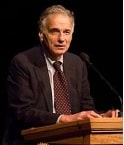
Ralph Nader
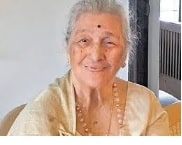
Jajie Mandanna
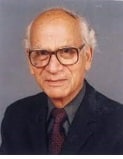
H D Shourie
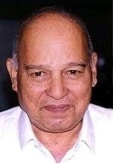
M R Pai
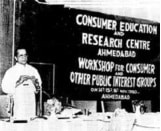
Manubhai Shah

K P S Kamath
